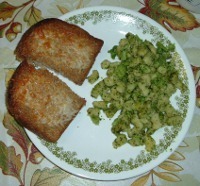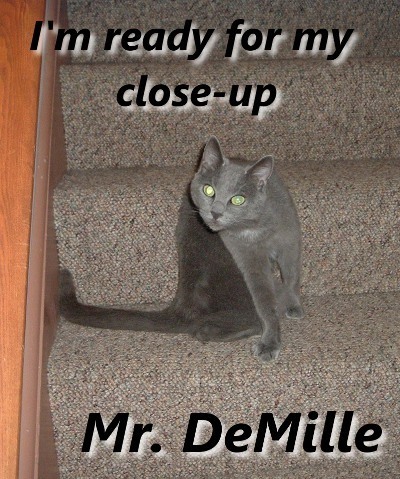Marian Allen's Blog, page 420
October 25, 2012
SAGE Book 1 Cover Reveal!

Click for larger image.
Okay, gang, the book is almost ready to go live! ~Kiki poinging~ It will be SAGE the eBook first, then it’ll go to print, and then to audio. Wheeeeeeee!
The superfantabulous Frank Hall of Hydra Publications has been working on the cover with input from me, T. Lee Harris, and other Hydrites. We like it. What do you think?

We already have the covers for books 2 and 3 nailed down. They’re also white with red figures, and they’re eye-popping! 
Poing! Poing!
The prologue and first chapter of this book are on this website: SAGE, Book 1
A WRITING PROMPT FOR YOU: Look at the cover of a book you love and know well. Is that a good cover for it? Why or why not? If you would change anything, what would you change?
MA

October 24, 2012
Recipe For Extracting DNA
Yes, really! We did this at Context, and Next-Door Grandson and I did it here in my kitchen, so it really really works.
We used:
2 small, clear, capped containers2 tablespoon warm water1 teaspoon raw wheat germ1 squirt liquid hand soap1 teaspoon baking soda1 teaspoon meat tenderizer1 tablespoon rubbing alcoholPut water into one of the clear containers.Add the wheat germ. Stir it to make sure all the wheat germ is wet.Add 1 squirt of liquid hand soap. This destroys cell membranes and releases DNA.Either cap the container and invert gently about 45 times OR don’t cap and stir gently to mix.Add baking soda. This releases the DNA from proteins.Add meat tenderizer. This removes the protein and destroys enzymes that would ruin the DNA.Either cap the container and invert gently 30 times OR don’t cap and stir gently.Let sit for 3 minutes so wheat germ solids settle to the bottom.Pour off the liquid into the second container, leaving the solids behind.Slowly add about 1 tablespoon of rubbing alcohol to the liquid.Wait. Cloudy, stringy stuff will rise to the top. DNA!!Is that cool, or what?

Look! DNA!!
Go thou and do likewise.
A WRITING PROMPT FOR YOU: Think of three things to do with a bag of wheat germ less one teaspoonful. You may include extracting more DNA as one.
MA

October 23, 2012
New Guy In Town
There’s been a new guy in town this past week. A little beagle has been hanging around. He sports a raggedy collar, so we don’t know if he belongs to somebody or not. He’s as skinny as I am not, so I suspect he’s one of the unfortunates that some hunters run for a season and then abandon so they won’t have to feed them over the winter. Or he could just be lost.
He’s a cute little feller, and our next-door grandson has fallen in love with him. The trouble is, he won’t stay put! I’m not sure if tying him up would be reassurance that we really do want him around or if it would constitute kidnapping.
I’ll keep you posted.
Meanwhile, speaking of posting — and kidnapping — I’m posting today at Fatal Foodies about Ross MacDonald’s THE MOVING TARGET and finding prices of the past.
A WRITING PROMPT: When does being protective become too much?
MA

October 22, 2012
Simon Says, MacDonald Doesn’t
There’s a certain amount of disagreement about the use of dialogue tags. Here’s what I think about ‘em. What I think about ‘em today, that is.
To begin with, people speak through gestures, facial expression, body language. The non-verbal element supplies movement, injects variety into the look of the words on the page, enforces the meaning of what is being said, or contradicts the meaning of what is being said. Like verbal dialogue, these non-verbal communications should be appropriate to the character and situation.
You can also describe a character’s actions to show who’s talking: One woman is chopping onions, one is pounding steak, one is peeling apples. “I hate this!” Whack! Whack! went the mallet. “It just makes me furious!” – You don’t have to tell the reader that it’s the woman pounding steak who said that.
As for dialogue tags: Use them only when you need them. Try other ways of indicating who’s speaking: with movement, as I just said; by giving characters distinctive speech patterns; by having them call one another by name now and then; by indirect discourse (“She told him what I had done.” “He asked a lot of questions about that morning, and we answered as fully as we could.” “We continued to argue about what to do.”); by the content of what they’re saying. “I’ll be old enough to drive next year” is the teenaged girl, not her father.
When you do need taglines, use plain old “said” and, occasionally, “asked.” The way a character says something should be implied in what was said, or in the speaker’s character or in the situation, or with movement, another sentence, or a subordinate clause: Don’t write, “Send the flowers to this address,” he said, happily. Do write, “Send the flowers to this address,” he said, and smiled. Use –ly words carefully. You can start to sound like Tom Swifties, if you don’t watch out. You know: “I hurt my leg,” said Tom, lamely. “I’ll cut your heart out!” Tom exclaimed sharply.
So Mom and I have been reading Ross MacDonald’s first Lew Archer PI novel, THE MOVING TARGET, the target in question apparently being the back of Archer’s head. There are big chunks of dialogue with no attribution (anything to tell us who is speaking), but it’s seldom confusing. For one thing, the sentences in these chunks are usually short and always packed with information. Since we know what Archer knows and doesn’t know, it’s clear who asking a question and who’s answering it.
I once wrote a story with no dialogue tags at all, using movement, description, anything I could except he said/she said. I’m no Ross MacDonald. I had to go back and plug in some tags to keep things clear.
Conclusion: Do whatever works for you. Now isn’t that useful? Aren’t you glad you came?
A WRITING PROMPT FOR YOU: Try writing a page of story with every piece of dialogue using he said or she said. Write it again with NO dialogue tags but showing who said what through movement, description, and any other means but he said or she said. Think about which works best where.
MA

October 21, 2012
#SampleSunday – Command Performance Excerpt
I’m working on a story for another anthology, using some minor characters from my upcoming fantasy trilogy, SAGE. Here is the beginning of it in its rough draft form. I think it starts a little slow. What do you think?
Command Performance – excerpt
copyright 10/21/2012 by Marian Allen
The Festival Players’ wagon creaked as Lumpkin pulled it up the steep hill. The huge, unlovely horse puffed and grunted, even though four of the troupe’s five members pushed. Silvin, against his usual protests, held the reigns and led the horse along the upward track, murmuring sullen encouragement.
“The faster you go, the sooner we’ll be at the top. The sooner we’re at the top, the sooner we can camp.” He cursed as he stepped over a stone deeply embedded in the packed earth, right where the road narrowed to one wagon’s width. Lumpkin lifted his massive hooves over the stone, but the wagon stopped there, with Silvin’s curses echoed and amplified by the players at the rear.
The baritone bellow of Florian, the Players’ leader, shook the nearby trees:
“Silvin! COME. HELP. PUSH.”
Silvin draped Lumpkin’s reins over the horse’s back and scurried back to add his limited strength to the crew. The front wheel bumped over. A breath or two and another heavy shove, and the rear wheel followed.
“Up front,” Florian said.
“Why can’t Maida lead and I’ll stay back and push?”
“Why should I?” Maida demanded. “Because I’m female?”
Florian, one shoulder to the wagon, patted Silvin’s face with audible paks. “Maida has power, boy. Physical oomph! You have other strengths.”
“Juggling isn’t one of them,” said Cristoval.
“It will be,” Florian boomed, drowning out laughter, protest, and any other possible vocalization. “He’s first-rate at the simple stuff, and he’s the best-looking of all of us, including Maida. Don’t sell the man short.”
Now at the front of the horse, Silvin heard nothing more except laughter, then grunts and groans as pushing recommenced.
“I can’t even feel put upon,” he grumbled to the horse. His years in the troupe primed him to cast himself as the hero of a grand fiction, but he knew he was neither a gallant nor an abused underling destined for surprising greatness. Good at dancing, fair at playing the lute, competent at elementary juggling, excellent mimic, quick of wit, delicately handsome, broad-shoulders disguising the weakness of his joints, he was a valuable member of the troupe. “I’m just lonely up here, with nobody but a horse for company.”
The wagon topped the hill, and the city of Bahari rose from the plain ahead. Silvin lead the horse slowly forward until the rest of the players joined them.
Florian clapped and rubbed his hands together, his brilliant smile breaking through his black beard. “We have time to set up and give them a matinée. Then we’ll have a bang-up supper, do a late show, and sleep at an inn tonight.”
A city supper and beds in an inn were rare treats. The laborious ascent of the hill was forgotten. Forgotten, until they found the city gates closed.
A lone guard atop a wooden watchtower shouted down,”Who goes there?”
“The Festival Players!” Florian didn’t merely say it, he announced it. “We’ve played Bahari many a time. They love us here! Why the closure? Are you in quarantine?”
“No,” said the guard. “It’s just for today. Because it’s … today.”
“Ah, of course! Naturally,” said Florian. He turned to Cristoval and asked, “What’s today?”
Cristoval shrugged an eyebrow, keeping their mutual cluelessness private.
The guard called, “If you’ll wait a moment, the Town Council is on its way to greet you and apologize.” It had the sound of a speech learned by heart and with great effort.
“This is intriguing,” said Florian.
A small door set into the watchtower opened, and a richly gowned man squeezed through, followed by four other equally well-dressed men and women.
When he was certain these five were all the audience he could expect, Florian gave them an elaborate bow.
With a sweep of his arm to indicate the wagon and troupe, he said, “My lords and my ladies, I present to you The Festival Players! What could do more honor to this most special of days than a performance to mark it?”
The Council whispered, inspected the Players from a distance, and whispered again.
The first man out said, “An excellent idea, but tomorrow would be more appropriate. Here is what must happen, if you’ll agree: When it’s full dark, we’ll put a light in the watchtower. Then you –” He pointed to Florian, “– come to the gate. You’ll find it unbolted. Push it open and come in. We’ll discuss your performance then.”
Florian said nothing.
After a long moment, the man cleared his throat and said, “Agreed?”
“This is most irregular,” Florian said grandly. “Light your lamp, and we’ll see.”
The Council smiled and nodded and squeezed back through the small door.
Maida slapped the still-silent Florian on the arm with her cap. “What was that about?”
Florian shrugged. “Some sort of local symbolic ceremonial,” he said. “We’ll get the story of it tonight or tomorrow. It might make a good play. Meanwhile, I’m afraid it’s camp cooking and the stars as bed curtains again tonight, my children.”
I’m also posting today at The Write Type on the subject of writing a memoir or family history.
A WRITING PROMPT FOR YOU: Invent a local symbolic ceremonial.
MA

October 20, 2012
#Caturday – Are Cats Good For Your Health?
Cats good for your health? I thought this was unlikely, so I did what every serious researcher does: I Googled it.
FutureMedica, a blog which describes itself as “a blog focused on the future of healthcare and biotechnology”, list 17 health benefits of cat ownership, including reducing blood pressure, stress, anxiety, improving mood, and fewer health care visits.
These people have obviously never owned a cat.
I did tell you about my mom’s hospital stay with cellulitis from her cat’s scratch, didn’t ? Yes, I did.
The Center for Disease Control is — shall we say a little less enthusiastic? We shall. They assure us, “you are not likely to get sick from touching or owning a cat“, then list some of the ways in which we might. We can minimize the risk, they tell us, by washing our hands after handling cat poop and avoiding cat scratches and bites. I’m like, “Really, Center for Disease Control? Really? Wow, I never would have thought of that. Your tax dollars at work!”
Mother Earth News says that the health benefits of pet ownership hold true for any kind of pet. It also says that “having a pet decreased a person’s risk of dying by about 3 percent per year”. So now we know why Crazy Cat Ladies are so ancient. If you have 5,000 cats, and each cat decreases your risk of dying….
By the way, here’s a link to a site called Crazy Cat Ladies, of women — and men — who genuinely love cats. Its purpose is to raise money for Best Friends Animal Society and Alley Cat Allies.
So are cats good for your health or not?
Depends on the cat.
~Cue the music from JAWS~
A WRITING PROMPT FOR YOU: Write about an animal hoarder and his or her rescue.
MA

October 19, 2012
Geek and Non-Geek Recommendations
I got some cool links to show you at WordCamp. Also some non-geeky ones. 
Okay, this one is AWESOME! It’s called SlideShare. You can go there and see, share, and add slides and notes and articles about so many things! This has got me bouncing off the walls.  Storybook Style architecture? Yes! Forensic Anthropology? Got it! Taoism? Indeedy-doo!
Storybook Style architecture? Yes! Forensic Anthropology? Got it! Taoism? Indeedy-doo!
Then there’s Sucuri.net. They sell security, but they have a FREE website checker. Type in your web site’s address (or that of any site you want to check, I suppose), and they scan it and give a full report on whether the site is blacklisted and/or infected. Mine, we’re all happy to know, is currently squeaky clean.
If you want to know how fast your website loads and how to make it load faster, go to the Google Developers site and sign up as a developer. Then go to the Google Developers Page Speed Insights and take it from there.
If you don’t have a website and you want one, and you don’t like Blogger or WordPress, you could try WIX. It’s free! It looks pretty amazing, actually. I have to stop looking. I’m getting jealous.
A WRITING PROMPT FOR YOU: What kind of house does your main character live in? What kind of house did he or she grow up in? What kind does he or she dream of having?
MA

October 18, 2012
Best Husband Ever
That would be mine. No, sorry, Holly, not yours, but mine.
He says, “I’m sorry I’m not demonstrative.”
I’m like, “Seriously? Seriously? Not demonstrative?”
If he reads this, he’ll be demonstrative by slicing me in two wi’ a breadknife and dancin’ about on me grave, because he doesn’t like to be talked about.
But he’s out there in the kitchen making breakfast. Hash browns and eggs and buttered toast.
That’s my kind of demonstrative!
It’s done — gotta go!
Baby, you’re the greatest!
A WRITING PROMPT FOR YOU: A character demonstrates an emotion by actions rather than gestures. Another character either does or does not understand.
MA

October 17, 2012
Spaetzle. No, I Didn’t Sneeze.
We have this awesome little grocery story in town called Bargain Buys. They have overstocks, dented stuff, stuff near (or, let’s be honest, past) its Best By date. They also have fresh meat and cheese from the Walnut Creek Amish.
The blessing and the curse of a place like that is that you never know what you’ll find there. What makes it a curse is that you never know if you’ll ever find that thing again.
 A couple of visits ago, I found a packet of dried spaetzle. In case you don’t know, that’s a little German egg noodle, sort of like a gnocci. Just a little nubbin of egg noodle pasta, which you boil in water or soup.
A couple of visits ago, I found a packet of dried spaetzle. In case you don’t know, that’s a little German egg noodle, sort of like a gnocci. Just a little nubbin of egg noodle pasta, which you boil in water or soup.
On this particular night, I cooked some. While the salted water was heating, I cut up some broccoli, including the stems. The spaetzle had to cook for 20 minutes so, when I put it into the water, I also put in the toughest bits of stem. 10 minutes later, I put in the small, tender parts of stem. 5 minutes later, I put in the florets. Then I drained it and dressed it with some of my homemade pesto.
I took some bread, spread it with garlic-infused olive oil, sprinkled it with Italian cheese mix, and broiled it until the cheese melted.
Good! And, I think, pretty!
A WRITING PROMPT FOR YOU: Have a character discover a new food from his or her own family heritage.
MA

October 16, 2012
My 5 Most Unforgettable Lessons
Yesterday, blog visitor Pam asked me what my most unforgettable lesson was from conventions and workshops and so on. Lists are nice, so here’s a nice list.
First things first. As I learned over the weekend, lesson #1 is: If an expert tells you to “just” do anything, don’t just do it. What the expert means is, “Do this and this and that and that other thing and several more complicated things, and then it will probably be safe to ‘just’ do the thing I said.” Trust me on this.
The late, great mystery writer Dick Stodghill taught me, “Don’t take yourself seriously — BUT take your writing seriously. Make sure the people around you take it seriously. Insist on it. This isn’t a joke; it isn’t something you play at; this is your work.” That advice literally changed my life.
Don’t judge. I met a young woman at a convention whom a lot of the attendees treated with scorn because they thought she went around drunk all the time. I shared a room with her because she had come to the con on a whim and didn’t have a room. She seemed drunk because she had extreme lupus and was taking experimental medication. Her choices were pain or loopiness. She stood the pain until she couldn’t, then she gave it up and took the loopiness.
You learn more from listening than you do from talking.
Most people are far kinder than you could ever imagine.
I also learned how to do this or that, but those lessons were merely useful. The ones on my list were important.
This is Tuesday, so I’m posting at Fatal Foodies today on the subject of French Twist Toast.
I was supposed to post at Echelon Expressions on Sunday, but I forgotted. I’m out of town most of today, so I may do it today or I may do it tomorrow. MY BAD!!
UPDATE: I posted at Echelon Explorations on the topic of cross-genre.
A WRITING PROMPT FOR YOU: A character’s good intentions are misunderstood.
MA






